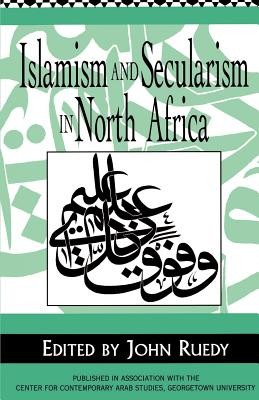
- We will send in 10–14 business days.
- Author: Na Na
- Publisher: Palgrave Macmillan
- ISBN-10: 0312160879
- ISBN-13: 9780312160876
- Format: 14.1 x 21.8 x 2 cm, softcover
- Language: English
- SAVE -10% with code: EXTRA
Reviews
Description
A remarkable drama is unfolding in the countries of North Africa (the Maghrib) as militant Islamic movements challenge the existing political order. Amid disenchantment at the failure of national leaders to resolve social and economic problems, the region has been rocked by demands for more representative and responsive political systems, and Islamic movements have won the upper hand in the battle for grassroots support. In Islamism and Secularism in North Africa, leading scholars from the United States, Europe, and North Africa explore the Islamic challenge. Drawing on the disciplines of political science, history, sociology, and anthropology, the contributors examine the relations between religion, the state, and political opposition movements in North Africa. Although the contributors show that the Islamic revival has been energized by the acute current problems of corruption, political exclusion, and pauperization, they also argue that its roots can be found in North African history, and that the Islamist-secularist divide reflects deep intellectual, political, and social differences that are not likely to disappear.
EXTRA 10 % discount with code: EXTRA
The promotion ends in 20d.14:52:45
The discount code is valid when purchasing from 10 €. Discounts do not stack.
- Author: Na Na
- Publisher: Palgrave Macmillan
- ISBN-10: 0312160879
- ISBN-13: 9780312160876
- Format: 14.1 x 21.8 x 2 cm, softcover
- Language: English English
A remarkable drama is unfolding in the countries of North Africa (the Maghrib) as militant Islamic movements challenge the existing political order. Amid disenchantment at the failure of national leaders to resolve social and economic problems, the region has been rocked by demands for more representative and responsive political systems, and Islamic movements have won the upper hand in the battle for grassroots support. In Islamism and Secularism in North Africa, leading scholars from the United States, Europe, and North Africa explore the Islamic challenge. Drawing on the disciplines of political science, history, sociology, and anthropology, the contributors examine the relations between religion, the state, and political opposition movements in North Africa. Although the contributors show that the Islamic revival has been energized by the acute current problems of corruption, political exclusion, and pauperization, they also argue that its roots can be found in North African history, and that the Islamist-secularist divide reflects deep intellectual, political, and social differences that are not likely to disappear.


Reviews